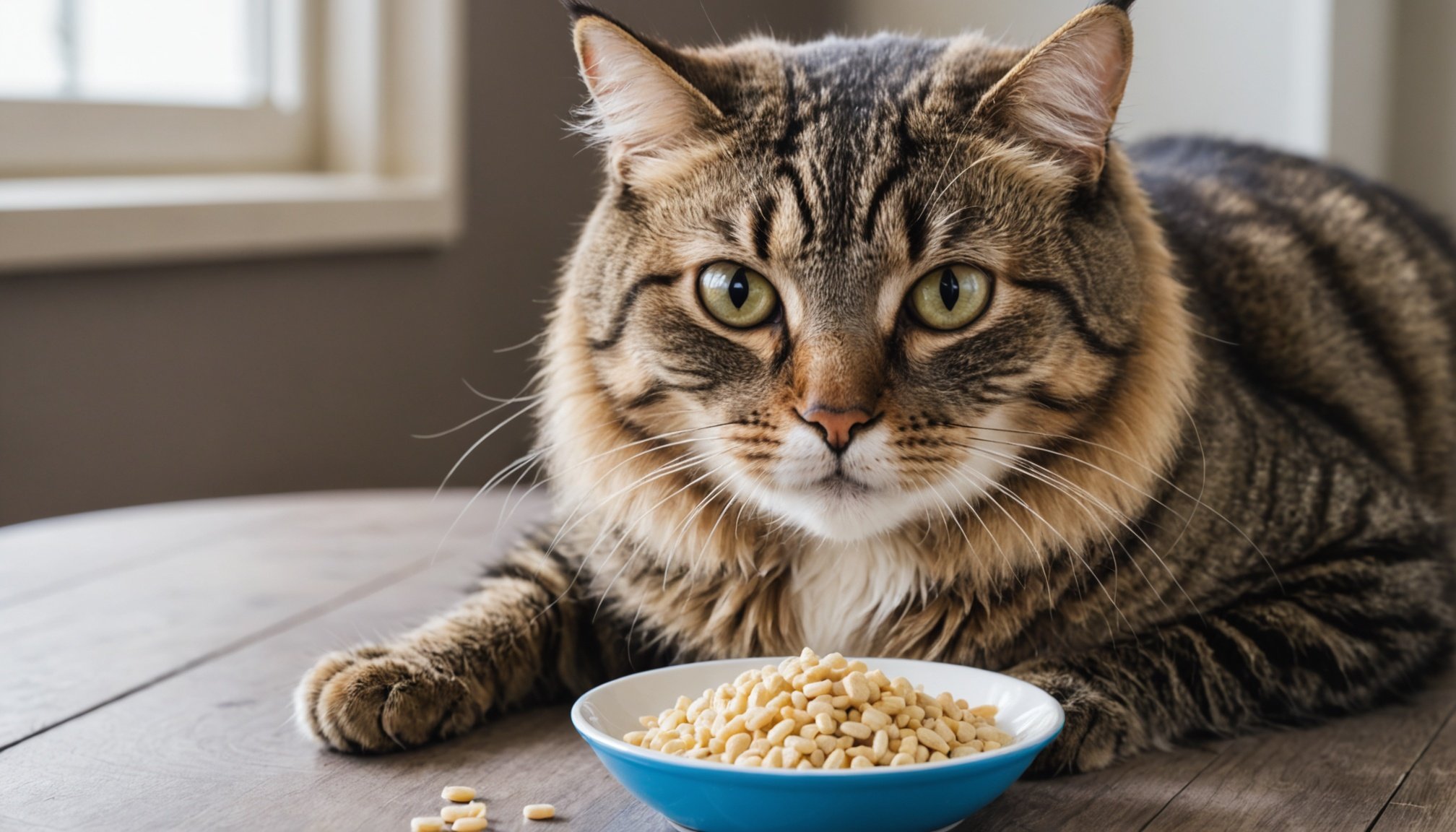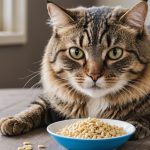Understanding Probiotics for Cats
In the quest for optimal digestive health in felines, probiotics for cats have emerged as a significant ally. These beneficial bacteria work by enhancing the gut flora, which is essential for efficient digestion and overall wellness. A balanced gut flora not only aids in nutrient absorption but also bolsters the immune system, reduces allergies, and minimizes gastrointestinal issues often faced by cats.
Cats, like humans, require different strains of probiotics to address specific needs within their digestive systems. Some popular probiotic strains include Enterococcus faecium, commonly used for its digestive benefits, and Bifidobacterium, known for promoting a healthy intestinal environment.
Have you seen this : Essential guide to detecting and treating early cataracts in senior cats: safeguard your cat’s vision with proactive care
Selecting the right probiotics involves understanding the distinctions between various types available for cats. Options range from powders, capsules, and even specially formulated treats that cater to feline palates. When choosing probiotics, it is crucial to consider the product’s quality and formulation to ensure the bacteria’s viability and effectiveness.
Providing these essential supplements supports your cat’s health by maintaining a healthy balance within their digestive tract. Maintaining this balance can lead to significant improvements in a cat’s life, making probiotics a worthy consideration in feline nutrition.
Key Ingredients to Look For in Probiotic Formulas
When selecting probiotic ingredients for your feline companion, ensuring the presence of essential strains and beneficial bacteria is crucial. Look for strains like Lactobacillus and Bifidobacterium, known for supporting overall digestive health in cats. These probiotics work synergistically to maintain a balanced gut environment, contributing to your cat’s digestive and immune health.
In addition to probiotics, digestive enzymes are integral in enhancing the effectiveness of these formulas. Enzymes such as protease and amylase aid in breaking down proteins and carbohydrates, making nutrients more accessible for absorption. This combination results in improved nutrient uptake, supporting a healthier and more active lifestyle for your cat.
Moreover, the role of prebiotics shouldn’t be overlooked. Prebiotics serve as food for probiotics, promoting the growth of beneficial bacteria. Including ingredients like chicory root or inulin in the formula provides this support, ensuring the probiotics can thrive and be more effective.
Lastly, it’s essential to focus on high-quality ingredients and formulations. Products using well-researched, safe strains, and maintaining good manufacturing practices are preferable choices. This approach ensures the probiotics remain viable and effective, delivering optimal benefits to your cat’s digestive system.
Recommended Dosages Based on Age and Weight
When considering the use of probiotics for cats, determining the appropriate probiotic dosage is crucial for effectiveness and safety. Dosage recommendations can vary based on the age and weight of your cat, and consulting with a veterinarian is advisable for personalized guidance.
Kittens generally require a smaller dose than adult or senior cats due to their developing digestive systems. For adult cats, the dosage might increase slightly to support sustained gut health. Senior cats, on the other hand, may need a tailored dosage to address age-related digestive changes and support weight management.
Weight management is essential when adjusting the probiotic dosage. Larger cats may benefit from a higher dose to ensure adequate distribution of beneficial bacteria throughout the gut. Meanwhile, underweight cats may have specific needs, necessitating an individualized approach to dosing.
Remember, starting with a lower dose and introducing probiotics gradually can help prevent any potential side effects, such as digestive upset. This method also allows pet owners to monitor their cat’s response to the supplements and make necessary adjustments. In addition to age and weight, specific health needs of the cat should be taken into account to provide the most benefit from probiotic supplementation.
Potential Side Effects of Probiotics for Cats
Introducing probiotics for cats can bring about benefits, but it’s crucial to be aware of potential probiotic side effects. Commonly observed reactions include mild digestive upset, such as increased gas or diarrhea, as the cat’s system adjusts to the new supplement. However, these symptoms are typically temporary and should subside as your feline adapts.
To minimise the risk of adverse reactions, it is advisable to introduce probiotics slowly and in moderation. Gradual incorporation allows the cat’s digestive system to acclimatise without overwhelming changes, thus, enhancing safe usage. This approach not only helps in preventing digestive upset but also ensures the full integration of beneficial bacteria into the gut flora.
In instances where more severe side effects occur, such as persistent vomiting or lethargy, it is important to seek veterinary care promptly. A professional assessment can determine if adjustments to the dosage or product are necessary.
Being mindful of these considerations will promote positive outcomes when adding probiotics to a cat’s diet. This careful monitoring and adjustment phase is vital to ensuring that your pet gains the most benefit without compromising their overall cat health concerns.
Tips for Incorporating Probiotics into Your Cat’s Diet
Incorporating probiotics into your cat’s diet requires thoughtful strategies to ensure acceptance and maximize effectiveness. Begin by gradually introducing the probiotic into your cat’s existing meals. Slowly increasing the amount allows your cat’s digestive system to adjust, reducing the likelihood of digestive upset. Starting with a small portion added to wet food or a favorite treat can encourage acceptance.
Consider your cat’s existing feeding practices and habits. Some cats may prefer flavored probiotic chews or powders that can easily mix with their regular food. Tailoring the method to your cat’s preferences will improve the likelihood of successful supplementation.
Monitoring your cat’s response to the new addition is crucial. Look for signs of improved digestive health, such as better stool consistency and reduced bloating. If any adverse reactions occur, consult with your veterinarian to adjust the dosage or product choice.
Lastly, consistency is key. Daily supplementation helps maintain a healthy gut flora and supports your cat’s overall well-being. By carefully integrating probiotics into your pet’s diet, you can enhance their digestive health and ensure they receive the full benefits of these beneficial supplements.
Expert Recommendations for Probiotics
When selecting probiotics for your cat, it’s crucial to seek veterinary advice for the most tailored and informed choices. Expert opinions often emphasize the significance of choosing formulations specific to feline needs, as they ensure safety and efficacy. Many veterinarians recommend selecting probiotics that have been scientifically validated through studies, reinforcing their effectiveness for different cat health scenarios.
Recommended brands often appear at the forefront of expert discussions, as they consistently deliver quality. Brands that utilise well-researched strains and demonstrate adherence to strict safety protocols particularly stand out. These products tend to maintain bacterial viability throughout their shelf life, improving digestive health and supporting the immune system effectively.
Moreover, studies bolster the reputation of probiotics in fostering better feline health. Evidence suggests that probiotics can aid in managing allergies, enhancing nutrient absorption, and even reducing inflammation. Veterinarians encourage using products with clinical backing to ensure these benefits are realized in your cat’s diet.
Considering expert insights and the findings from scientific research will provide a solid foundation for integrating beneficial probiotics into your cat’s nutritional regimen. Aim for products endorsed by professionals to maximise positive outcomes while minimizing potential health concerns.
Comparing Probiotic Brands: A Review
Navigating the vast array of probiotic brands available for cats can be a daunting task. The market analysis reveals several top contenders, each with unique features tailored to enhance feline digestive health. Understanding these distinctions can guide pet owners in making informed choices.
When comparing probiotic brands, it is essential to consider key factors such as quality, ingredients, and pricing. Brands that prioritise high-quality formulations typically use well-researched beneficial bacteria strains with proven efficacy, ensuring effective gut flora support. Top brands optimize the balance of probiotics and may include complementary prebiotics or digestive enzymes to enhance effectiveness.
Equally important is assessing the pricing strategy of each product. While some brands command a premium price, they often justify it through stricter manufacturing protocols and sustained viability, which can be cost-effective in the long run. Others offer more budget-friendly alternatives, suitable for quality-conscious consumers.
Lastly, consider user reviews to gauge real-world performance. Products that consistently receive positive feedback across multiple aspects, such as palatability, ease of use, and overall digestive health improvement, deserve special attention. By thoroughly evaluating these elements, owners can select a probiotic that aligns with their cat’s unique needs, fostering optimal well-being.











